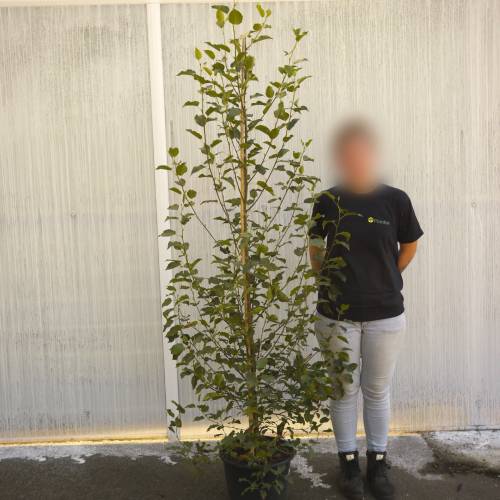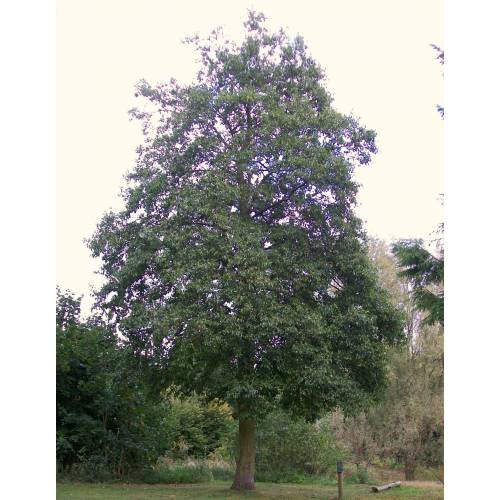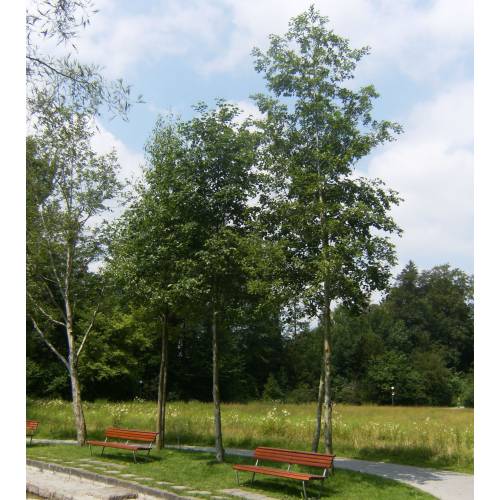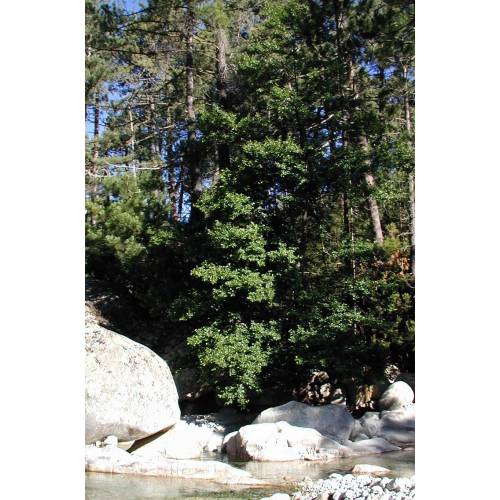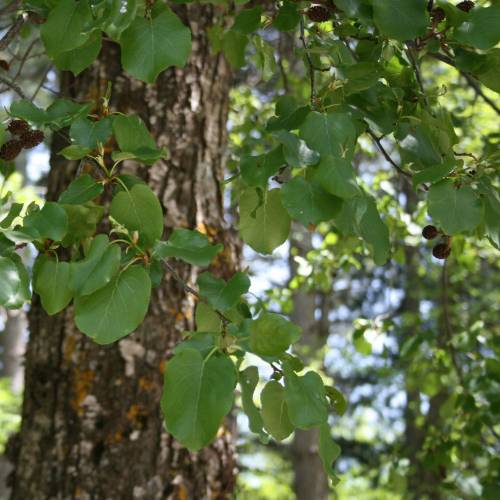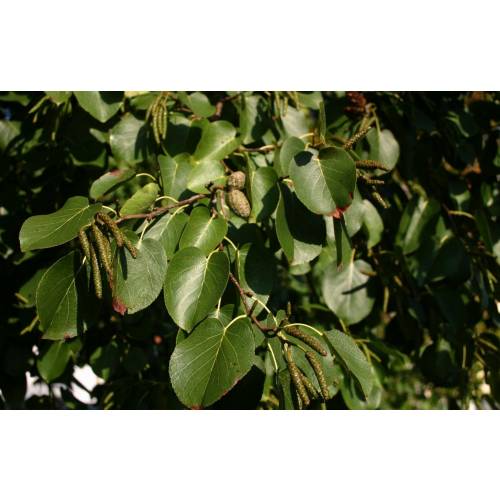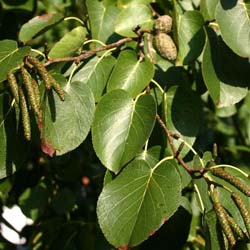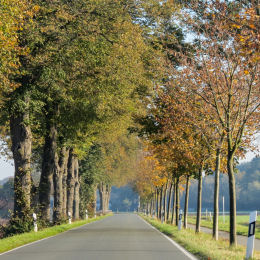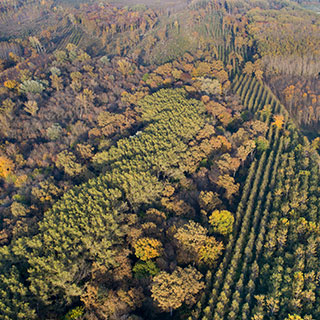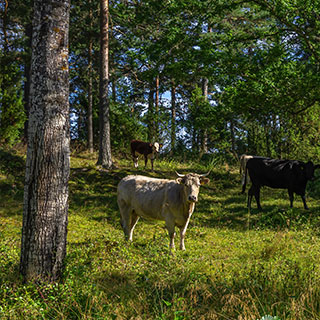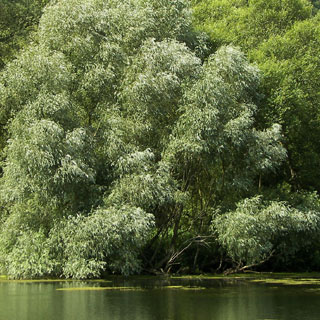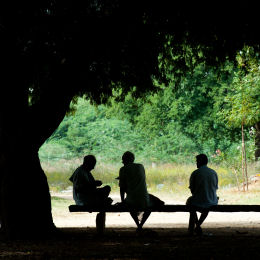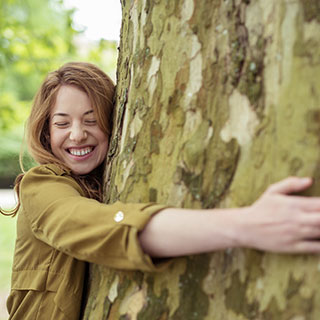
Plants
Alder, italian / Alnus cordata
-
69.79 € Italian alder - Alnus cordata
1615SB - Available
-
6.44 € Italian alder - Alnus cordata
1615J - Available
-
5.90 € Italian alder - Alnus cordata
1615Q - Available
-
4.81 € Italian alder - Alnus cordata
1615K - Available
-
4.11 € Special Offer - 30%
1615J1 - Available
-
2.65 € Italian alder - Alnus cordata
1615U - Available
-
2.11 € Italian alder - Alnus cordata
1615E - Available
-
0.00 € Italian alder - Alnus cordata
1615F - Request for quotation
-
Areas of origin: Corsica, centre and south of Italy.
Adult Dimensions: Height up to 25 metres (82'), width up to 12 metres (39.4').
Foliage: Deciduous.
Soil type: All.
Hardiness: Hardy to -20°C.
Exposure: Full sun.
Properties and uses:
The leaves of the Corsican Alder are a glossy dark green on the top and light green underneath. They are heart shaped at their base. It’s a beautiful ornamental tree. Not fussy about the quality of soils and with a rapid growth, the Corsican Alder is often used to replant industrial wasteland or motorways rest areas. It can also be found as part of numerous windbreak and rural hedges.
Plant, or reforest Norway Maple, Alnus cordata, alnus cordifolia – Foresters Guide
1) The Norway Maple (Robinia pseudo-acacia) is it suitable for my land? The Italian Alder needs sunlight but is sensitive to drought in its early years. However, as an adult, this variety can develop mechanisms to reduce cavitation (i.e. reduce the size of the xylem vessels), which makes it quite resistant to drought.
Being a Mediterranean variety, the Italian Alder can be sensitive to the cold continental climates, and the attempts to introduce this tree outside of its natural zone show that it is sensitive to late frost. The Italian Alder grows generally in moist soils, rich and poorly drained. Being able to fix the nitrogen in the atmosphere, it’s particularly competitive in hydromorphic soils.
2) Which planting density for my Norway Maple plot? (Alnus cordata, alnus cordifolia)
The planting density is the number of plants planted in one hectare (acre). Here it means determining the initial number of young plants and to choosing their repartition in the available space.
The planting density is defined by the gaps in between the lines as well as the spacing in between each plant on a same line.
It is the basics of the silvicultural path which must lead to a final trees’ population of quality and to the fulfilment of the land’s owner set goals.
Advice: When choosing the density, think about the width of the tool which will allow the maintenance of the gaps in between the lines. The space in between the lines must allow clear passage for a tractor-drawn, maintenance tool.
For the Italian alder, Corsican alder (Alnus Cordata)
- It is better to plant between 1200 and 1600 plants/hectare.
- Final density wanted: 100 plants/hectare.
3) How to prepare the soil to plant Norway Maple (Alnus cordata, alnus cordifolia)?
In Silviculture, working the soil is a key element in the success of planting. The root system of the tree must take rapidly where planted. Whether the work is done mechanically or manually, we recommend working the soil in its depth for optimum planting.
4) How to plant the Norway Maple (Alnus cordata, alnus cordifolia)?
a- Receipt, storage and preparation of the plants before planting
- Upon receipt, place the crates side by side, on a flat surface so as there is no air circulation underneath. Choose a shady spot protected from wind;
- Maintain a good humidity level of the plants on the crates placed on the edges,
- Plan for the possibility of watering if planting is delayed or if the plants require water,
- In case of frost, do not handle the plants and if frost is forecasted for several days, place mulch on the edges.
b- Planting
Our team of professional planters use a planting cane to place the earth-balled plants in situ. This ergonomic, light tool allows quality, quicker planting work. It is also possible to carry out a traditional planting work using a pickaxe or a spade
In all case, you must:
- Dig a hole a little bit larger than the earth-ball ;
- Position it well in the hole;
- Cover it entirely;
Finally, the worker will tamp down the soil carefully with its foot. It is forbidden to press strongly or again to heel-butt the plant to avoid crushing the earth-ball and damage the root system of the plant.
Video on planting using a planting cane
Buy Planting cane
5) How to limit weeds on my Norway Maple plot (Alnus cordata, alnus cordifolia) ?
During the first years, it is essential to eliminate all self-propagating plants. Not controlled they are going to be in competition with your plants and are going to deprive the young trees of the vital elements they require to grow (water, light and nutritional elements). You must therefore eliminate mechanically this unwanted competition until the trees are big enough to be able to dominate it.
Two types of operations are possible after planting:
Manual clearing around the plants
It is in fact acts often carried out using portable thermic Strimmers or billhooks to clear plants on a line or around the plants themselves.
Mechanical clearing of the space in between the lines
These actions are done using cutters and flail mowers, horizontal or vertical cutters, mounted on mini excavators or tractors. As a result, they cannot be undertaken outside the spaces available between the tree lines (seedlings or plants).
6) How to protect my young False Acacia plants from wildlife (Alnus cordata, alnus cordifolia) ?
There is a necessity to protect the plot as soon as the population’s density of Cervidae (deer and roe deer in particular) risk leading to significant damage such as undergrowth of the plants or friction of the stems. Sometimes, the setting up of plants’ protection is also necessary as soon as the rodents’ population (rabbits, hares, coypu, voles...) are locally important.
3 types of protections are possible:
- Individual, mechanical Protections ( dissuasive netting, photo-degradable tubes,...)
- Protection by total wire-fencing of the plot,
- Protection by applying a repellent on each plant or on the borders of the plot.
Catalogue Protections against Game

